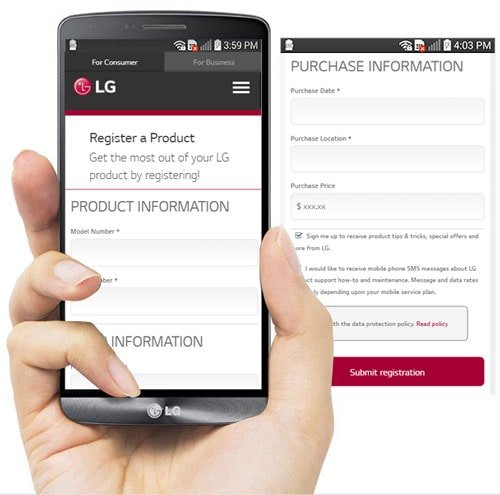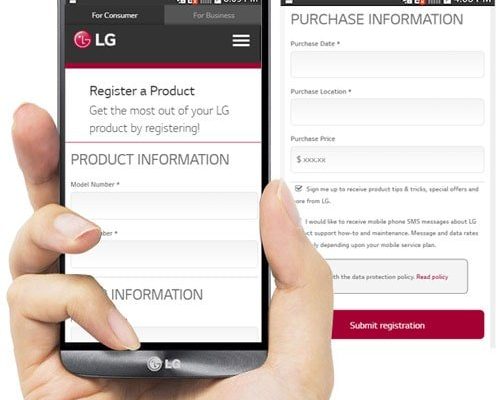
Let’s be honest: appliance warranties can be confusing, especially when you’re not the original buyer. All those rules and exceptions can feel like you’re reading the fine print on an insurance policy you didn’t pick. But don’t worry. Whether you picked up your LG washer at a neighbor’s garage sale or found a gently used dryer online, let’s break down what’s actually possible in simple, down-to-earth terms.
How LG Laundry Appliance Warranties Usually Work
Honestly, before you even start thinking about registering a used LG washer or dryer, it’s important to know how LG warranties are set up in the first place. Most LG laundry appliances come with a manufacturer’s warranty that kicks in when the product is *first* purchased new from an authorized retailer. This warranty usually covers things like defects in materials or workmanship—essentially, if something goes wrong because of how the machine was made or put together, and not because of something you did.
Here’s the thing: these warranties typically last 1 year for general parts and labor, but some models give you extra coverage for particular components. For example, LG is known for offering 10-year warranties on certain direct drive motors or drum parts. But—and this is important—the clock starts ticking the moment the original owner makes their purchase.
If you’re not the first owner, you might think, “Why does this matter to me?” It’s because warranty coverage is usually tied to both the original purchase date and the original buyer’s details. LG keeps track of this in their system, so registering a used appliance isn’t as simple as updating your email and calling it a day.
Registering a Used LG Washer or Dryer: Is It Possible?
You might be wondering if you can just hop onto LG’s website, register your secondhand washer or dryer, and instantly gain warranty coverage. I wish it were that straightforward, but the reality is a bit more complicated. LG, like most big appliance brands, generally only allows the original purchaser to register the appliance and enjoy the full benefits of the warranty.
If you try to register your used LG laundry appliance online, the system often asks for:
- The original purchase date
- Proof of purchase (like a receipt or invoice)
- The retailer’s name
If you’re missing any of these details, or if the proof of purchase isn’t in your name, the registration might get rejected, or you won’t be able to claim warranty service in the future.
But here’s the twist: while registering a used LG appliance for warranty *transfer* isn’t typically offered, the remaining warranty might still be valid, depending on how the policy is written. Some warranties stay with the product—not the owner. Others are non-transferable, meaning only the first buyer is covered.
If you bought a used LG washer with plenty of warranty time left, check the paperwork and call LG customer support. Sometimes, you can get support or repairs during the coverage period, as long as you have the original proof of purchase.
Common Problems When Registering Used LG Laundry Appliances
It’s easy to get excited after scoring a deal on a pre-owned LG washer or dryer, but the hiccups usually show up when you try to register the warranty. Here’s what tends to trip people up:
- Missing Original Documents: Warranties typically require the original purchase receipt. If you don’t have it (and let’s be honest, most sellers don’t hand that over), you’re in a tough spot.
- Non-Transferable Warranties: LG’s standard policy is that the warranty is for the original buyer only. The company’s system tracks the registration back to that first purchase.
- Incorrect Registration Info: If you try to “reset” the clock with your own purchase date or use your details without the right documents, the system may decline your registration or requests for service later.
People try various workarounds—like asking the original owner to handle warranty claims for them or looking for universal warranty services. But these are risky and rarely supported by LG.
Let me explain with a story: Suppose you found a like-new LG dryer at a moving sale, and the seller said, “It’s under warranty.” But after moving it home, you realize there’s no paperwork. When you try to register it, you’re met with a form you can’t fill out—no original receipt, no retailer. You contact LG, and they politely tell you the warranty can’t be transferred. Frustrating? Absolutely. But it’s the reality for most buyers of used appliances.
How to Check If a Used LG Appliance Still Has Warranty Left
Okay, so you can’t register your used LG washer for a *new* warranty, but what if it’s still covered under the original one? Here are a few steps to figure that out:
- Find the Serial Number: This is usually on the back or inside the door of your washer or dryer. It’s your key for checking warranty status.
- Ask for the Original Receipt: If you’re buying used, always ask the seller for the original proof of purchase—even a photo of the receipt helps.
- Call LG Customer Support: Give them the serial number and explain your situation. They’ll check their records and tell you how much warranty time (if any) is left, and if it’s at all possible to receive service as a second owner.
Sometimes, LG may allow support or repair if you have all the right details and the warranty period hasn’t expired. But don’t expect to “reset” the coverage just because you registered it under your own name. The company mainly uses the initial purchase date as their anchor.
If you’re out of luck on warranty, knowing the age of the appliance still helps with repairs and troubleshooting. LG’s support can often guide you in syncing, resetting, or pairing components, even if you’re no longer covered for free repairs.
Alternatives: Protection Plans, Universal Warranties, and DIY Solutions
If LG’s original warranty won’t cover your used washer or dryer, you’re not entirely out of options. There are alternatives—but each has its quirks.
- Third-Party Warranty Plans: Some companies sell “extended” or universal protection agreements that you can purchase even after buying a used appliance. Just be careful—read the fine print, because coverage varies a lot.
- Home Appliance Insurance: Certain home warranty plans may cover used appliances, no matter their age or who bought them first. These are popular in real estate transactions.
- DIY Troubleshooting: If your LG washer or dryer acts up, many times it’s a simple fix—resetting codes, replacing batteries in display panels, or syncing new parts. LG’s online resources or user communities are surprisingly helpful for these quick fixes.
Sure, none of these are as good as a full manufacturer’s warranty, but they might save you from a costly repair bill or help you keep things running while you figure out your next steps.
Why LG and Other Brands Limit Warranty Transfers
You might be thinking, “Why can’t companies just let the warranty stick with the appliance, no matter who owns it?” It sounds fair, right? But from LG’s point of view, there are a couple of reasons why the rules are so rigid.
First, manufacturers want to avoid fraud. If anyone could reset a warranty by “registering” a used LG dryer, it’d be easy for people to game the system, claim fake repairs, or abuse returns. Limiting these benefits to the first owner (with original proof) keeps things manageable on their end.
Second, warranties are built into the original sale price. The cost of that coverage is wrapped into what the first buyer pays. If it extended for free to every future owner, it would drive up costs—or companies would have to make other things more expensive to cover their risks.
Finally, service history matters. When LG services a warranty claim, they want to know how the machine’s been handled, maintained, or installed. Tracking this is much harder as appliances change hands.
It can be annoying, but the logic is there—it’s about business sustainability and keeping things honest.
Should You Buy Used LG Laundry Appliances Without a Warranty?
Let’s be real: just because you can’t register a used LG washer for warranty doesn’t mean buying used is always a mistake. In fact, for a lot of people, the savings are worth it—as long as you go in with your eyes open and ask the right questions.
Here’s what I’d look for before sealing the deal:
- Make sure the appliance works in person—run a full cycle or at least plug it in.
- Ask for the original purchase receipt or warranty documents (even if just for reference).
- Check the serial number for age and possible recalls.
- Consider how easy it is to get replacement parts, and whether you’re willing to do basic troubleshooting if something goes wrong.
If you’re not comfortable with some DIY repairs (like resetting a code or swapping a battery), a new appliance (with full warranty) might be a better bet. But if you don’t mind rolling up your sleeves—and you love a bargain—used LG appliances can still serve you well, even without full warranty perks.
Wrapping It Up: The Real Deal on Used LG Appliance Warranties
So, can you register used LG laundry appliances for warranty? In most cases, the answer is no, at least not in the way you can with a brand-new washer or dryer. The original warranty usually sticks with the first buyer, and registration requires details only they’d have. But here’s the silver lining: with a little research, you can still check if there’s any coverage left, and there are alternatives for peace of mind if you’re going the secondhand route.
Buying used doesn’t have to be a gamble. As long as you know what to expect—and aren’t counting on a free fix down the road—you can make a smart choice for your home, wallet, and laundry day routine. Sometimes the best warranty is just knowing how to troubleshoot, repair, or call for help when you need it.
